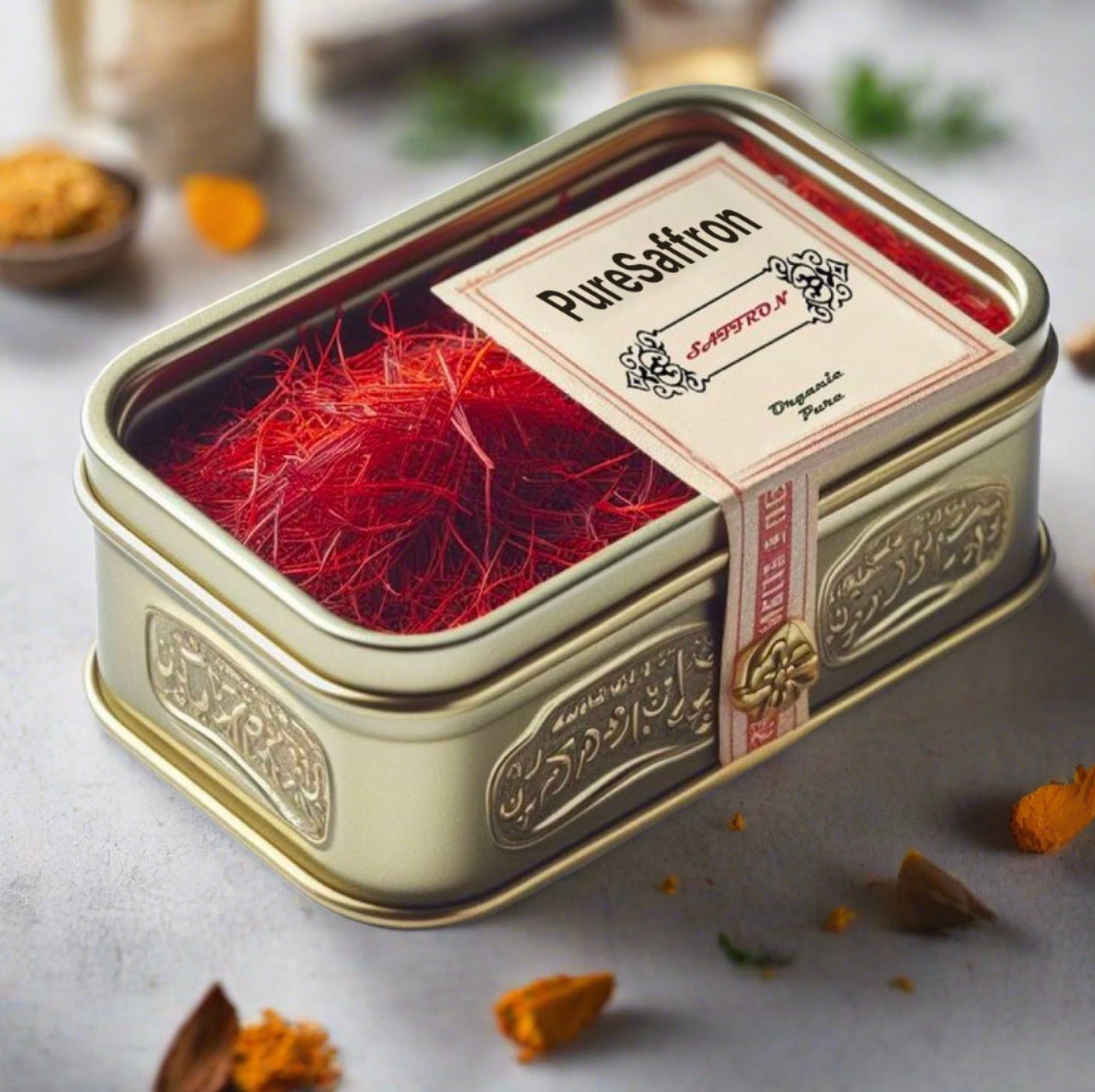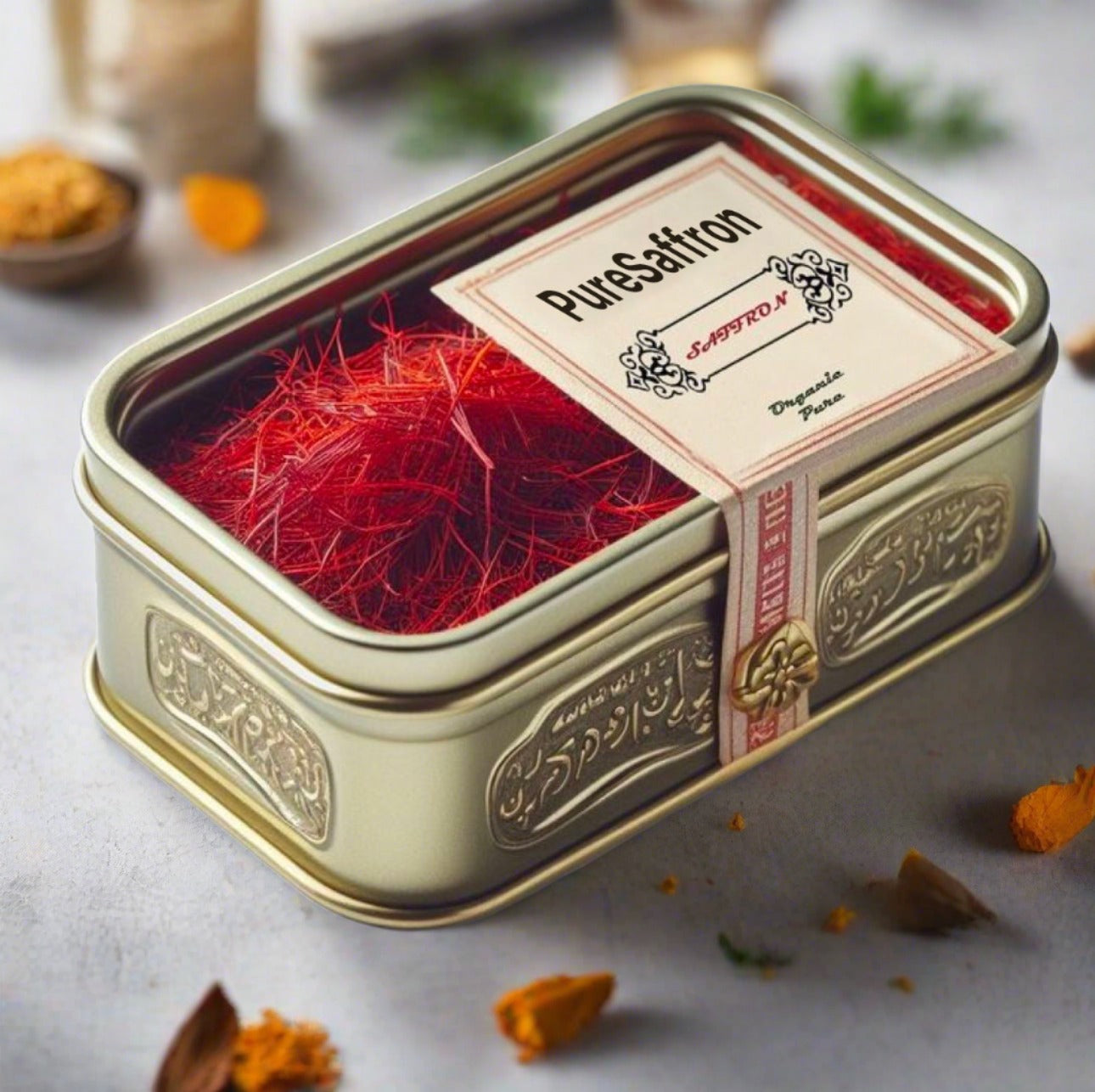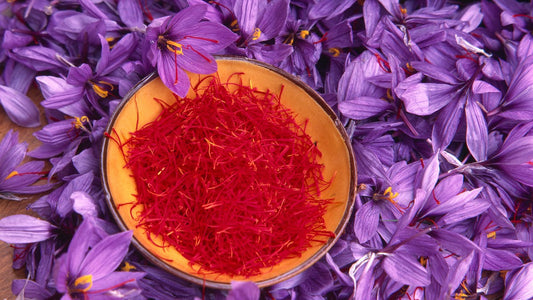
Saffron Antioxidant Properties: Unlocking Nature's Health Benefits
Ara OhanianShare
What Are Antioxidants and Why Are They Important?
Antioxidants are compounds that protect our cells from damage caused by harmful molecules known as free radicals. Free radicals are unstable molecules that can harm cellular structures, potentially leading to chronic illnesses like heart disease, diabetes, and cancer. Antioxidants work by neutralizing these free radicals, reducing oxidative stress and promoting overall health.
Among the range of natural antioxidant sources, saffron stands out as a powerful and unique option. Known as the "golden spice," saffron is not only prized for its flavor and color but also for its remarkable health benefits stemming from its antioxidant properties.
Saffron Antioxidant Properties: A Closer Look
Saffron is rich in bioactive compounds that contribute to its potent antioxidant properties. These compounds include:
- Crocin: A carotenoid responsible for saffron's vibrant color, crocin is a powerful antioxidant that protects cells from oxidative stress.
- Crocin: This compound has been shown to aid in reducing inflammation and repairing oxidative damage in the body.
- Safranal: A compound that gives saffron its distinctive aroma, safranal has been found to possess neuroprotective and antioxidant effects.
- Kaempferol: A flavonoid found in saffron petals, kaempferol offers anti-inflammatory and antioxidant benefits, supporting heart and brain health.
Together, these compounds make saffron a potent natural source of antioxidants, helping to combat oxidative stress and support overall well-being.
Health Benefits of Saffron's Antioxidant Properties
The antioxidant properties of saffron have been linked to a variety of health benefits. Here are some of the key ways saffron can contribute to better health:
1. Supports Brain Health
The antioxidants in saffron, particularly crocin and safranal, have been shown to protect brain cells from oxidative damage. Studies suggest that saffron may help improve memory, reduce symptoms of depression, and protect against neurodegenerative diseases like Alzheimer's and Parkinson's.
2. Promotes Heart Health
Saffron's antioxidant compounds, including crocin and kaempferol, help reduce oxidative stress, which is a major contributor to heart disease. Saffron can also lower cholesterol levels, improve blood circulation, and reduce inflammation, all of which contribute to better cardiovascular health.
3. Enhances Eye Health
Saffron's crocin has been found to protect the eyes from oxidative damage and improve retinal health. Research suggests that saffron may slow the progression of age-related macular degeneration (AMD) and improve visual function in patients with eye disorders.
4. Reduces Inflammation
Chronic inflammation is a key driver of many diseases, including arthritis, diabetes, and cancer. Saffron's antioxidant properties help to reduce inflammation by neutralizing free radicals and supporting the body's natural healing processes.
5. Boosts Immune System
The antioxidants in saffron strengthen the immune system by protecting cells from harmful oxidative damage. This helps the body fight infections and maintain overall health.
How to Incorporate Saffron into Your Daily Routine
Adding saffron to your diet is a simple and delicious way to enjoy its health benefits. Here are some ideas for incorporating saffron into your daily meals:
- Add a few strands of saffron to warm milk or tea for a soothing and antioxidant-rich beverage.
- Use saffron to flavor rice, soups, and stews for a vibrant and aromatic twist.
- Combine saffron with honey or yogurt for a nutritious and flavorful snack.
- Incorporate saffron into baked goods, such as cakes and cookies, for a unique and healthy treat.
To truly experience the benefits of saffron's antioxidant properties, it is important to choose high-quality saffron. Check out our Persian Pure Saffron to ensure you're getting the best saffron available.
Scientific Studies Supporting Saffron's Antioxidant Benefits
Numerous scientific studies have validated the antioxidant properties of saffron and its impact on health. For example:
- A study published in the journal Antioxidants highlighted crocin's ability to reduce oxidative stress and support cognitive health.
- Research in the Journal of Medicinal Food demonstrated saffron's potential to improve cardiovascular health by reducing inflammation and oxidative damage.
- A clinical trial published in Ophthalmology found that saffron supplementation improved retinal function in patients with age-related macular degeneration.
These studies underscore the potential of saffron as a natural, antioxidant-rich supplement for promoting overall health and well-being.
FAQs About Saffron Antioxidant Properties
-
1. What makes saffron a good source of antioxidants?
Saffron contains bioactive compounds like crocin, crocetin, safranal, and kaempferol, which are powerful antioxidants that neutralize free radicals and reduce oxidative stress.
-
2. Can saffron help with anti-aging?
Yes, saffron's antioxidant properties help combat oxidative damage, which is a major contributor to aging. This can promote healthier skin and protect against age-related diseases.
-
3. Is saffron safe for daily use?
Saffron is generally safe for most people when consumed in moderate amounts. Consult your healthcare provider if you have any concerns or underlying health conditions.
-
4. How much saffron should I consume to benefit from its antioxidants?
Consuming a small amount, such as a few strands per day, is sufficient to enjoy the health benefits of saffron's antioxidant properties.
-
5. Can saffron supplements replace fresh saffron in my diet?
While saffron supplements can provide some benefits, fresh and high-quality saffron is always the best choice for maximum potency and effectiveness.




